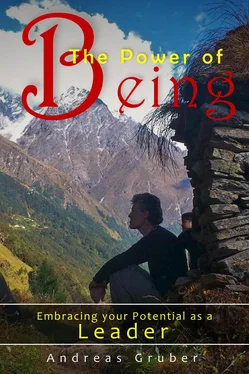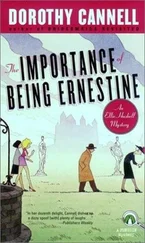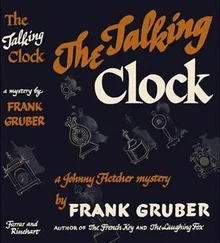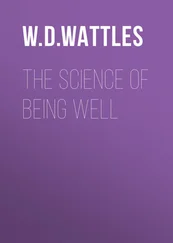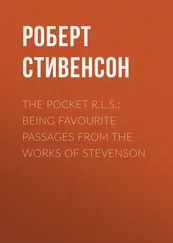The Romans did not give away their freedom and ability to change consciously, nor do we. Unless you have learned to operate your mind in a different way, your habits and triggers will take over your operations automatically. That is the threat we are facing. The autopilot we have allowed to take over is our mind in a kind of idle state.
Charles Duhigg, the author of the bestseller The Power of Habit, refers to the latest science when he explains that: "40-45 percent of our decisions per day are just habits." He goes on to explain that neuroscience shows that while we indulge in a habit, our brain goes down to a frequency similar to the level just before falling asleep.
We may laugh about sleepwalkers, but that's ultimately what we all are. But it doesn't have to remain that way. We can only find real freedom within ourselves. Although we can be enslaved and limited by our pain, our minds present an even greater challenge to us. The pain we do notice, but the mind may get away unnoticed. We have the ability to change that if we become aware and choose to. That's what this book is about.
I would like to present one of the most powerful exercises that I know. At the same time, it is one of the very simplest and easy to do. I'm a believer in simplicity because the simplest seem to last longest, and maybe because I'm just lazy.
The last things we do when going to sleep, leave a rather significant impression on the mind. If you watched a violent movie, you might have noticed that your sleep becomes less peaceful. We can use this effect on the mind to create a positive pattern or habit. It is easy to underestimate this tiny exercise, but it won't cost you a thing, so you may as well give it a try. The reasons why I would recommend this, would also be that it is for sure something everybody can and has time to do.
Conditioning the mind towards a higher state of awareness:
When you lie in bed, ready to sleep, be aware of your body. Seek out a rather fine sensation in your body that you can stay with without effort. If it disappears, look for another one.
Don't make it a chore, or a stressful task. Be relaxed about it, enjoy it, and rest in this perception. Just stay with that, without any further intention to achieve anything. Don't go after any thoughts or memories. Just watch and allow yourself to fall asleep.
After some days, you will notice that your mind is calmer and other days it will be somewhat turbulent, due to the activities of the past day. Observe all that and do nothing. There is nothing to achieve. Just observe the body while you allow yourself to fall asleep.
Never underestimate the small things, when it comes to cultivating the mind.
To build small but productive habits has huge potential. This may be one of your most essential and largest steps toward a higher awareness and a clearer mind. Within a couple of weeks, your mind will continue observing during sleep, and this will change your ability to perceive subtle perceptions dramatically. Over time, you will notice a clear difference when you wake up every morning. Just give it some time.
Thoughts and emotions are intimately related. Every thought corresponds to an emotion, like the reverse side of a coin. We don't complain about the pleasant emotions, but what do we do with the unpleasant ones?
It is clear to most of us that whether we merely think about a lemon or take a bite, the reaction in the body is essentially the same. Most obvious is that the mouth starts watering. Scientists say that the brain is not reacting very differently to something actually happening now, or a thought or memory. Considering that an average person has up to 50,000 thoughts per day, and most of them are connected to emotions and reactions, this represents a significant strain, hidden within ourselves.
Descartes once stated: "I think, therefore I am!" And I can certainly remember times in my life, where I would identify with many of my thoughts, to such an extent that I felt one with them, and they were one with me. As if I would have believed that I am my thoughts, in the same way as we may have the impression that "I am my body."
To be identified with our thoughts is not rational. It's a habit that overrules wisdom.
One possibility is to be fully identified with the content of my mind; the other is to realize that most of these thoughts are only passing by. It made a big difference to me, on a very practical level. There is no more reason for me to run after these thoughts, to understand them all or to get attached to them.
This matters to me because identifying with thoughts, implies reactions, and reactions result in strain and lost energy. To accept them as passing objects, on the other hand, helps me to change my habitual reaction patterns. Imagine, we would watch the latest James Bond movie and react physically to every scene. There would be more action in the cinema auditorium than on the screen. People would run around all over the place. No, we don't behave like that, because we have untrained ourselves to react on that level, to become mere spectators. We allow ourselves to be emotionally moved by this movie because we like that part of the experience.
I remember as my daughter was around five years old, she would not be able to stay in a cinema for more than 20 minutes because she still thought the movie was real. She interpreted every scene as reality, as most of us tend to do at that age, depending on how much television experience we have. Some of us get the hang of it earlier.
So, what we can do in the movies, we can also do with the content of our minds and the subsequent emotions. What a relief that would be for many of us. Think about it, thousands of thoughts leading to emotions. To react or not to react to them makes a big difference. Most of our thoughts and emotions we are not even aware of, but at the subconscious level it drains our energies.
In the case of the James Bond movie, you could argue and say, that on a deeper level we still do react. Yes, that's the point. And we do that mainly for two reasons. 1) We want to experience these emotions to be able to enjoy the movie. 2) We normally do not know how to go deeper and un-train our mind's reaction towards that stimulus even if we wanted to. I'm not saying we would need to go all the way, but what I'm saying is that it's not impossible.
Emotional maturity is like wisdom; it doesn't come with the delivery.
So the message is that we ought to look for opportunities to use our habits in our favor, instead of against us. We ought to make use of our minds in the most productive way. Throughout this book, you will get some invitations in that direction.
As a leader, you may have wondered how to deal with other people's emotions. If you learn to deal with your own thoughts and emotions first, other people's emotions will probably never present a problem to you again. Emotional maturity is a process we are personally in charge of. First, we face it, then observe it, then we deal with it.
17 How we jump to conclusions
We usually like to consider ourselves as rational beings, especially in corporate life. To be emotional in our jobs is usually not connected with positive associations. And yet we have known for years that we do not take rational decisions at all. We do make a lot of decisions by habit or even by reaction, and it seems that the rest is generated emotionally. Afterwards, we seek logical reasons and make it look like a rational decision. Sometimes people refer to the gut feeling when taking decisions. Personally, I could never relate to that. Maybe the definition was too general or too unclear to me, but I think I wasn't the only one with those kind of doubts. Something that made sense to me originates from the Canadian Alan Krakower. According to him, there are six authorities within us helping us to take decisions. We all have one of them dominating our decision-making process. This is clearly not a scientific approach. However, this alternative view may open doors to new understanding.
Читать дальше
